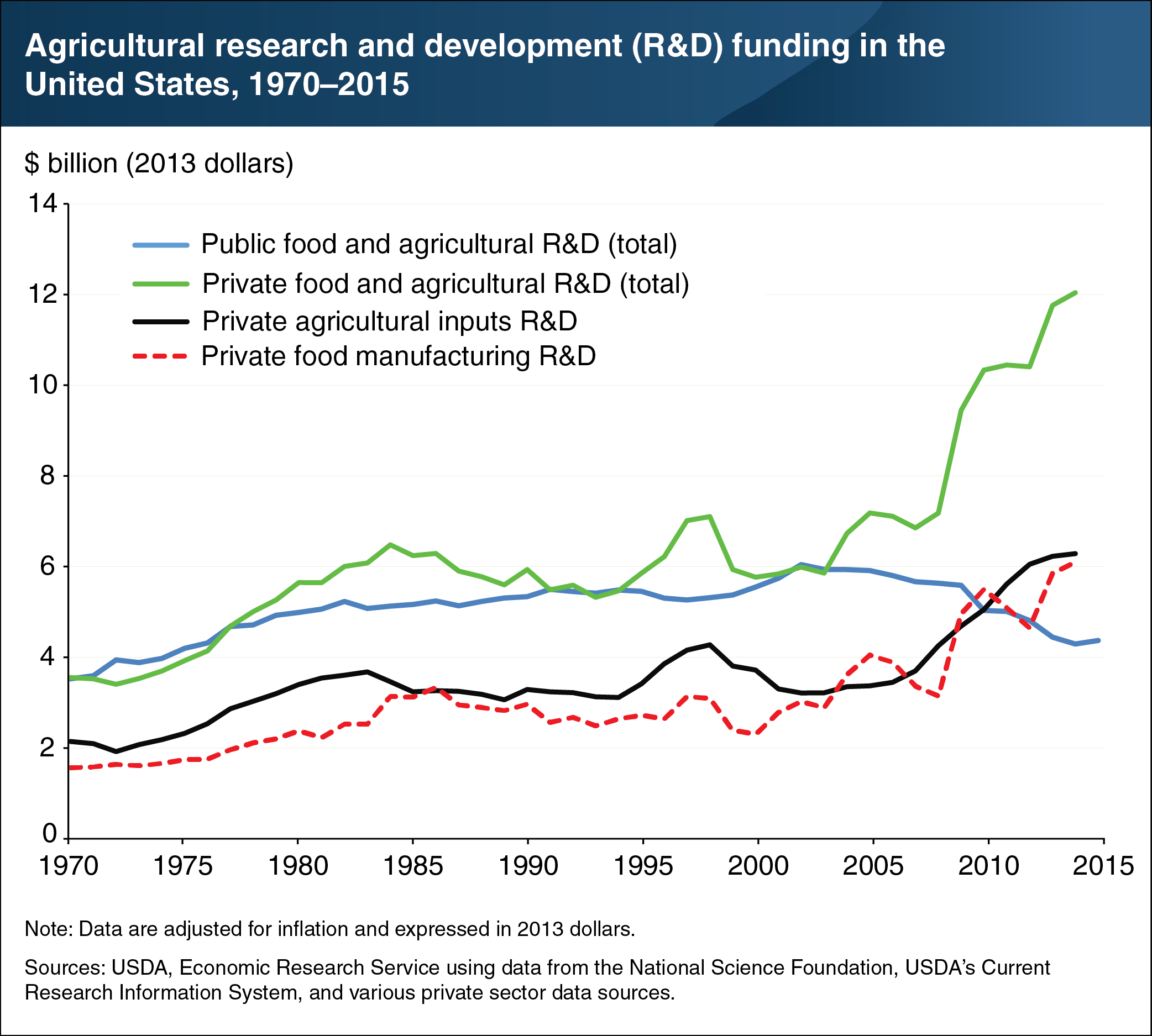Agricultural research spending from the private sector has increased while spending from the public sector fell
- by Paul Heisey
- 7/9/2019

Historically, public institutions often played a direct role in developing new agricultural technologies and encouraging their commercialization and adoption by farmers. Levels of public investment in research and development (R&D) increased through the early 1980s. However, since then, growth rates in public-sector R&D have been generally low. Until 2003, private-sector investment was comparable to, or moderately higher than, public-sector investment—though growth in private-sector investment had been more variable. After 2003, however, public and private research investments began to diverge rapidly. Total private agricultural and food R&D doubled between 2003 and 2014, while public R&D fell. By 2010, private R&D for agricultural inputs alone surpassed the public level for all agricultural research, which also includes research in areas not directly related to crop and livestock production. Public and private agricultural research efforts are often complementary, rather than competitive. The private sector focuses mainly on R&D related to marketable goods and technologies, with a large share of investments going to the food manufacturing industry, which has little impact on agricultural productivity. The private sector also dominates farm machinery research. On the other hand, public-sector research efforts are more likely to be applied to areas with large social benefits, such as environmental protection, nutrition, and food safety. This chart appears in the ERS data product Agricultural Research Funding in the Public and Private Sectors, updated February 2019.

